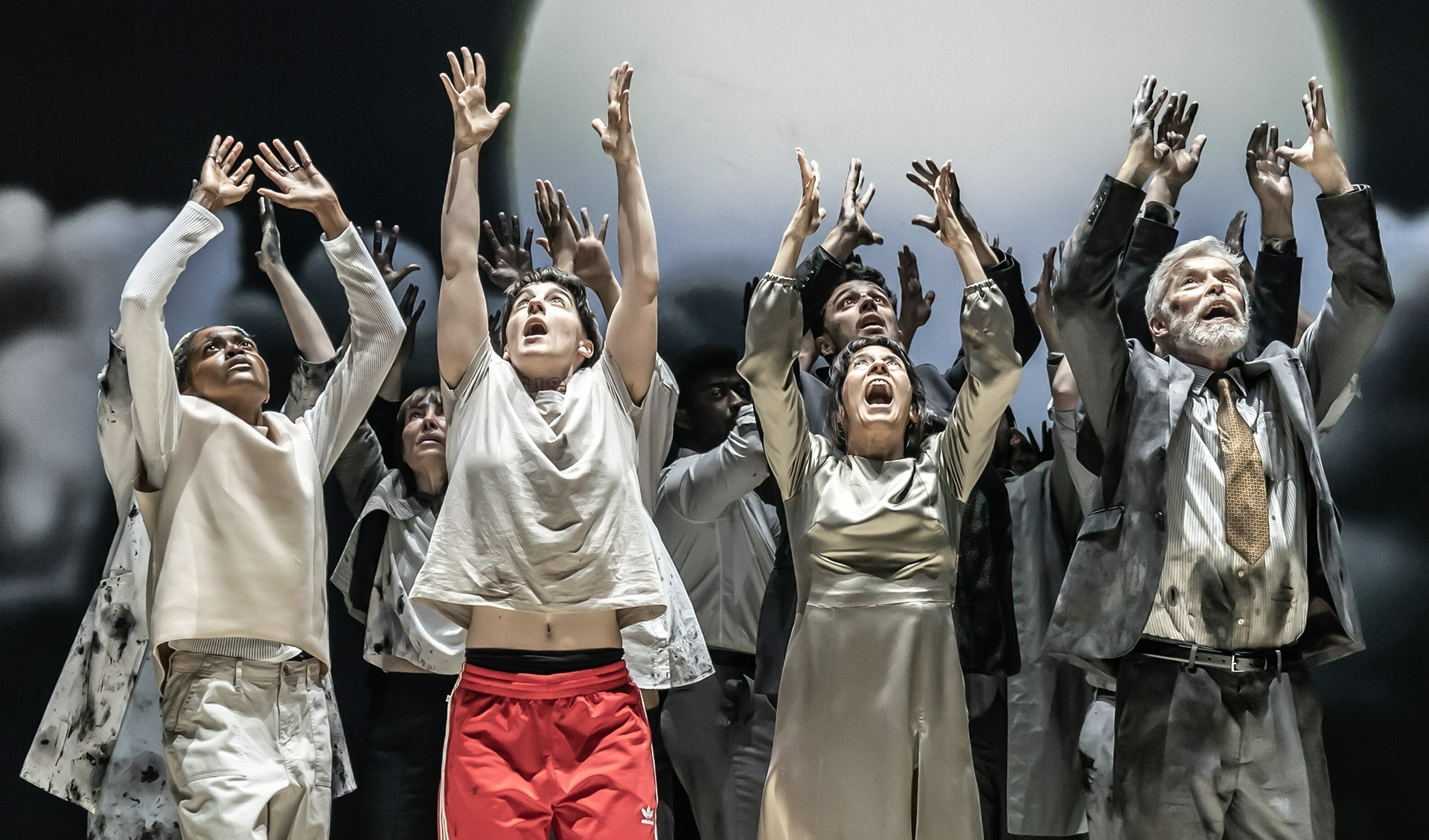There is great pleasure in travelling to Stratford-Upon-Avon to see Shakespeare performed at the theatre and by a company that bears his name. It is a delightful setting and even on a cold spring afternoon, a stroll along the Avon reflecting on its historical heritage and supper in the Theatre’s excellent Rooftop Restaurant makes the trip a special event. The memories of seeing Sir Ian McKellen, Sir Kenneth Branagh, Dame Judi Dench, or Sir Anthony Sher perform the great roles of the canon build the anticipation of seeing a play even if we have seen the title performed before. The RSC has a huge responsibility to showcase the works, to broaden their appeal and enhance and build on its four-hundred-year legacy. The balance between innovation in the staging to “freshen” its appeal and staying true to the historical story is the Director’s responsibility and the choices he makes will determine the success of striking this balance.
Director Atri Banerjee states in the programme he was working “towards a more complex understanding of the world” and that the “Company member's own identities have fed into the show”. Such an approach must also help us, as an audience, understand what we are seeing and what it is saying to us and not distract us from the narrative or leave us confused over the intention. The play is a debate about regime change and the impact on the conspirators and the response from the wider public. To engage with the characters, we need to understand their status in society and feel the gravitas that enables them to carry a crowd but sadly in this production we see people casually dressed apparently of equal status speaking the lines in hysterical rages. He adds a so-called Community Chorus in black gowns who appear as observers with a curious opening to each Act when they blow over the Soothsayer and Cinna before a bizarre stomping dance that feels out of place with the historical narrative. When the assassination takes place black goo is used to symbolise blood and the conspirators remain smeared with it for the rest of the show for no obvious reason. They look like messy painters or printers rather than bloodied murderers.
 These issues are compounded by casting changes of gender for Cassius (Kelly Gough), Brutus (Thalissa Teixeira) and other conspirators which rebalances the cast gender mix but changes the feel of the roles to bickering sisters rather than powerful “kingmakers”. The casting of Ella Dacres as Octavius dressed in battle fatigues worked satisfactorily as the new Leader. Annabel Baldwin brings an energy and strong presence as the Soothsayer, engaging the audience well with their eyes.
These issues are compounded by casting changes of gender for Cassius (Kelly Gough), Brutus (Thalissa Teixeira) and other conspirators which rebalances the cast gender mix but changes the feel of the roles to bickering sisters rather than powerful “kingmakers”. The casting of Ella Dacres as Octavius dressed in battle fatigues worked satisfactorily as the new Leader. Annabel Baldwin brings an energy and strong presence as the Soothsayer, engaging the audience well with their eyes.Nigel Barrett as Julius Caesar suffers too from costuming and staging and does not stand out as a leader until he returns in red as a ghost and joins a host of dead conspirators in the large spinning cube upstage. William Robinson as Mark Anthony does at least grab our attention in his pivotal famous speech “I come to bury Caesar, not to praise him” and its discussion of honourable men and their ambition (although lines like “she is an honourable man” jar) and we feel he is addressing us. Another success is Jamal Ajala as Brutus’s attendant Lucius who BSL signs his lines, and this brings a powerful intensity to Brutus’s death.
 The thrust stage is backed by the large cube with projected images and while some are obvious like the images of storm clouds gathering, others are simply distracting and confusing and when the cube spins in First Act the interiors revealed are bare and devoid of any sense of location. Only in the Second Act when it spins does it have a purpose which is the creation of some sort of afterworld looking down on the survivors.
The thrust stage is backed by the large cube with projected images and while some are obvious like the images of storm clouds gathering, others are simply distracting and confusing and when the cube spins in First Act the interiors revealed are bare and devoid of any sense of location. Only in the Second Act when it spins does it have a purpose which is the creation of some sort of afterworld looking down on the survivors.Perhaps this modern-dressed, gender-blind cast with its energetic movement will appeal to a younger new demographic but it left me cold, disinterested and bemused and while occasionally the spirits were lifted by one of the many classic speeches from this powerful political tragedy, it failed to deliver on the anticipation and expectation created by a visit to Stratford Upon Avon. The new Artistic Director will need to ensure that the RSC does get the balance right between honouring the immense legacy of the work and modernising the storytelling to resonate with the current society and perpetuate that legacy.
Review by Nick Wayne
Rating: ★★
Seat: Row H | Price of Ticket: £80

